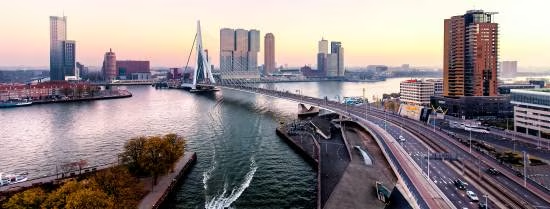What does this study entail?
Whether in energy, food, mobility, healthcare, or finance: the institutional, technological, and social systems we have historically developed are not sustainable and need to transform in ways we cannot predict nor control. In academia, we call this ‘societal transitions’. A societal transition is a “a process of structural, non-linear systemic change in a dominant societal regime that takes place over a period of decades (Rotmans et al, 2001, Grin et al, 2010)”.
Facilitating and managing societal transitions requires us to experiment, initiate and transform the status quo. We need to acquire skills and knowledge that transcend disciplinary boundaries and enable us to synthesize and draw connections between multiple perspectives.
The Master Societal Transitions equips you with the knowledge and skills necessary to understand, interpret and work on complex societal transitions. It is transdisciplinary, integrating knowledge from various disciplines – including philosophy, ecology, and law - and practice. Herein, it focuses especially on the socio-economic and institutional dimensions of societal transitions: the role of power, agency, culture, beliefs, values and social movements, in areas such as energy, food, care, mobility and construction.
The master provides you with the knowledge needed to embrace complex, systemic, persistent (un)sustainability issues. Since no one can address today’s challenges alone, you will collaborate with other professionals (peers, teachers, researchers and societal stakeholders) and co-create interventions for a just and sustainable society. Hereby, you will move beyond theory and apply your learnings in a real-life context.
Become a leader in societal transitions
This programme trains you to become a leader who can interpret transition dynamics and intervene to influence the speed and direction of transition processes. More specifically, it teaches you to:
- understand, analyse and frame diverse transition contexts (think);
- collaborate with various stakeholders and facilitate difficult conversations in a constructive manner (connect);
- dare to experiment, initiate, and transform current situations (act);
- learn quickly, adapt, and shape social experimentation as a social learning process (reflect).
Is this the right programme for you?
This programme is unique because...
- It is a direct response to the challenges of our time.
- It is transdisciplinary, connecting academic knowledge from a range of disciplines – including transition management, philosophy, law and sociology – with the experiential and practical knowledge of (working in) practice.
- It is transformative, supporting systemic thinking, personal change, and growth. It helps you develop an engaged, entrepreneurial, experimental, and reflexive attitude.
- The programme offers you the opportunity to design and facilitate an intervention for a sustainability challenge in the graduation project, instead of writing a traditional thesis.
- Studying Societal Transitions in Rotterdam means living in a dynamic city that is an inspiration and citylab for your studies.
Does this sound appealing to you? Then the Master Societal Transitions might be a great fit for you! Learn more about the programme during the Master Open Day.

